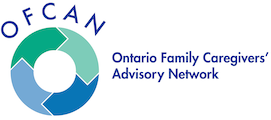National Overdose Response Service (NORS)

NORS is an overdose prevention hotline for Canadians providing loving, confidential, nonjudgmental support for people who have substance use problems.
This peer-run, peer-led overdose prevention hotline makes overdose support available to Canadians 24/7.
Does Secure Care Work?
Families for Action Recovery (FAR) Executive Director, Angie Hamilton, was recently interviewed by The Canadian Press about the issue of secure, or involuntary, care to protect minors addicted to substances. Listen to Interview on 980 CKNW Mornings with Simi and read the article by Camille Bains on the Globe & Mail.
Making Health Care Work for People with Opioid Use Disorder (OUD)
Research shows that for people with severe OUD, access to prescribed substances under the care of healthcare professionals can be both life-saving and life-changing. Injectable opioid agonist treatment (iOAT) allows patients to engage in recovery on their own terms. The data shows that iOAT reduces overdose risk, increases patients’ likelihood of addiction recovery, and has a positive impact on their overall health. When we make health care work for people with substance use disorders, we create new space and time for them to begin a journey of healing, to build relationships, set goals, and ultimately, think about the future. Learn More
New Resources to Prevent Substance-Related Harms Among Youth
The Public Health Agency of Canada has developed The Blueprint for Action: Preventing Substance-Related Harms Among Youth Through a Comprehensive School Approach and accompanying policy paper for administrators, school board officials, teachers, guidance counsellors, healthcare professionals and community organizations that support youth. These resources set out action plans and strategies at various levels of the Canadian education system to prevent substance-related harms.
Blueprint for Action
Policy Paper
Summary
Parents Like Us – The Unofficial Survival Guide to Parenting a Young Person with a Substance Use Disorder
This 106-page guide is written by parents for parents and covers a plethora of topics, including early warning signs for substance use, harm reduction tips, naloxone access and information, ways for parents to stay connected to their child, resources, and heartfelt reflections from parents. Access Guide
New Animated Video Uses Compassion to Challenge Substance Use Stigma

Rapid Access Addiction Medicine Clinics in Ontario
A rapid access addiction medicine (RAAM) clinic is a low-barrier, walk-in clinic that patients can attend to get help for a substance use disorder without an appointment or formal referral. RAAM clinics provide time-limited medical addiction care including pharmacotherapy, brief counselling and referrals to community services. See clinics in Ontario.
Health Quality Ontario
Quality Standard for Opioid Use Disorder
This quality standard focuses on care for people 16 years of age and older (including those who are pregnant) who have or are suspected of having opioid use disorder. The standard includes 11 quality statements and 1 emerging practice statement addressing areas identified by Health Quality Ontario’s Opioid Use Disorder Quality Standard Advisory Committee as having high potential for improving the quality of care in Ontario for people with opioid use disorder.
Learn More
Health Quality Ontario
Quality Standard for Problematic Alcohol Use and Alcohol Use Disorder
Health Quality Ontario has released a new standard that provides guidance on helping people with problematic alcohol use and alcohol use disorder reduce their consumption or abstain from alcohol, and covers screening, assessment, and treatment options that address people’s needs and preferences. The standard will help patients, families and caregivers know what to ask for in their care and will help healthcare professionals know what care they should be offering, based on evidence and expert consensus.
LEARN MORE
The Change Foundation
Mental Health and Addiction Provider Training Modules
The Change Foundation has released a second series of Caregivers as Partners provider training modules specifically for mental health and addiction. Providers will gain a better understanding of the unique issues faced by caregivers who have a loved one with a mental illness and/or addiction and discover resources and tips to help improve their interactions with those caregivers. The three-part series focuses on 1) Nature of the illness & the impact on the family, 2) Burden of care 3) Hope & recovery. Scroll down to Caregivers as Partners – Mental Health and Addiction.
Set up an account and login.
Cannabis Knowledge Exchange Hub
If you are looking for resources and evidence-based knowledge about cannabis, this link provides current and accurate information. The resources include handouts, webinar recordings and podcasts, and the site will be updated as new information comes out.
Learn More
Health Quality Ontario
Quality Standards for Mental Health and Addictions
Welcome to the Health Quality Ontario library of quality standards. Search via the link below to find all of our quality standards at various stages of development.
Try the Tool
Families for Addiction Recovery (FAR)
Presentation at the Recovery Capital Conference on Protecting Addicted Youth
Presentation links:
- Abstract (which contains linked resources/references)
- Presentation
- Slides
The three takeaways:
- need for treatment on demand
- need for decriminalization and regulation of drugs
- need for involuntary treatment as a tool in the toolbox
It’s Not about Us: The Secret to Transforming the Mental Health and Addiction System in Canada
If you or a loved one have been affected by addiction and mental health issues, and have tried to or wanted to advocate for change in the system, this book will help you know how to do that.
For more information Click Here
FAR’s Presentation at 2020 META-PHI Conference
Angie Hamilton and Louise Lemieux White from Families for Addiction Recovery (FAR) presented Family-Centred Care at the Meta:PHI 2020 Conference. Watch the presentation here.
 OFCAN
OFCAN 
